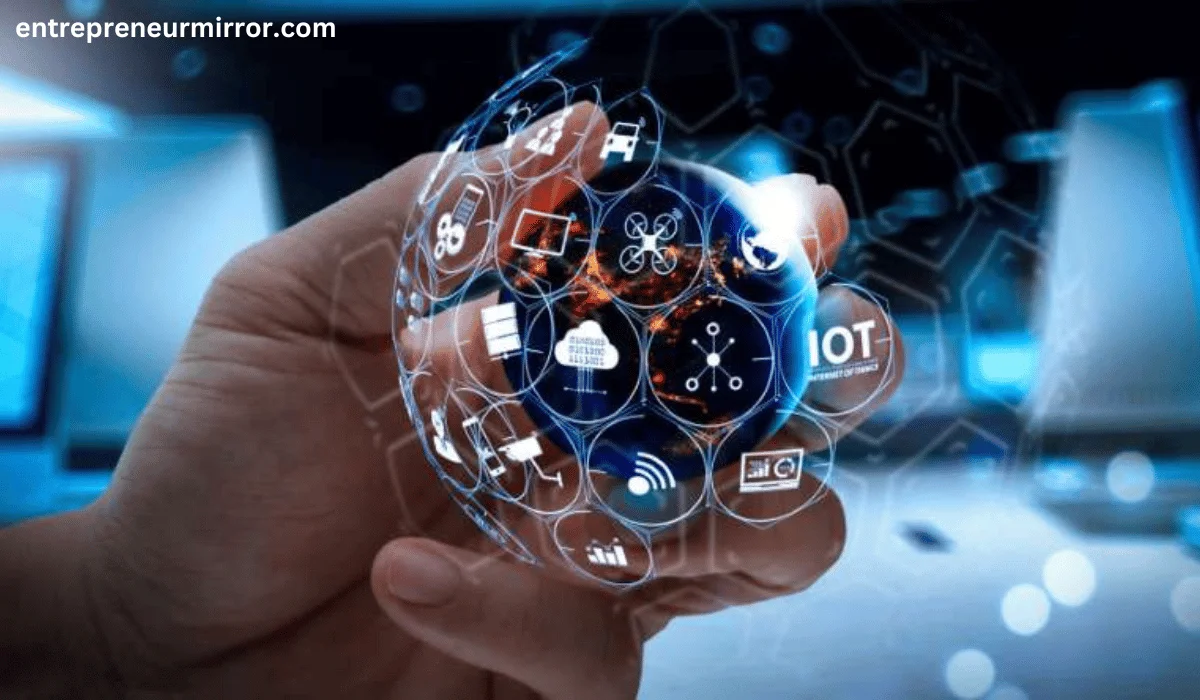The world of technology is advancing at an astonishing pace. Every year, new innovations emerge that challenge the status quo and push the boundaries of what we once thought possible. These developments are not only revolutionizing industries but also reshaping our daily lives. In this article, we will explore five cutting-edge tech innovations that are expected to make a significant impact in the near future. From artificial intelligence (AI) breakthroughs to the rise of quantum computing, these innovations are poised to transform the world as we know it.
1. Artificial Intelligence and Machine Learning: The Future of Automation
Artificial Intelligence (AI) and Machine Learning (ML) are undoubtedly two of the most influential tech innovations of the 21st century. AI refers to the simulation of human intelligence in machines, enabling them to perform tasks that would typically require human intervention. Machine Learning, a subset of AI, involves the use of algorithms to allow machines to learn from data and improve over time without being explicitly programmed.
In recent years, AI has made tremendous progress. Today, we see AI in various applications, from self-driving cars to virtual assistants like Amazon’s Alexa and Apple’s Siri. However, the potential of AI and ML is far from being fully realized. In 2025, AI is expected to revolutionize several industries, including healthcare, finance, manufacturing, and retail.
One of the most exciting developments in AI is its ability to assist in personalized medicine. AI-driven tools can analyze patient data and recommend tailored treatments based on individual genetic profiles and medical histories. In the finance sector, AI is being used to detect fraudulent transactions, predict market trends, and automate trading, potentially reshaping the world of investment.
Moreover, the growth of AI-powered automation is set to drastically change the workforce. With advancements in natural language processing (NLP) and robotics, AI is becoming increasingly adept at performing complex tasks that require human-like understanding, such as customer service, content creation, and even medical diagnostics. As AI continues to evolve, its ability to enhance efficiency, productivity, and innovation will only grow stronger.
2. Quantum Computing: Unlocking Unimaginable Power
Quantum computing is another game-changing technology that promises to revolutionize industries by solving problems that are beyond the capabilities of traditional computers. While classical computers process information in binary (0s and 1s), quantum computers leverage the principles of quantum mechanics to perform calculations at an exponentially faster rate.
Quantum computing works using qubits (quantum bits), which can represent both 0 and 1 simultaneously due to a phenomenon known as superposition. Additionally, quantum computers can harness entanglement, allowing qubits to be interconnected in ways that classical bits cannot. This unique ability allows quantum computers to solve highly complex problems, such as simulating molecular structures, optimizing logistics, and performing cryptographic calculations, in a fraction of the time it would take a traditional computer.
At present, quantum computers are still in their infancy, but companies like IBM, Google, and Microsoft are making significant strides toward building commercially viable quantum machines. In fact, Google’s 2019 achievement of quantum supremacy—proving that a quantum computer could solve a problem faster than the most powerful classical supercomputers—was a major milestone in the field.
The implications of quantum computing are vast. In the field of healthcare, quantum simulations could unlock new treatments by accurately modeling the interactions between molecules and proteins, allowing for the development of personalized drugs. In cybersecurity, quantum encryption methods could lead to virtually unbreakable security protocols. Furthermore, industries such as finance, logistics, and artificial intelligence will benefit from quantum computing’s ability to process vast amounts of data and optimize complex systems.
However, building large-scale, stable quantum computers is still a formidable challenge. Researchers are working on overcoming issues such as error correction and quantum decoherence, which currently limit the scalability of quantum machines. Nevertheless, quantum computing holds the potential to radically change how we solve some of the most complex problems facing humanity.
3. 5G Technology: Redefining Connectivity
5G technology is set to transform the way we connect and communicate. As the fifth generation of wireless technology, 5G promises faster speeds, lower latency, and greater connectivity than ever before. With 5G, download and upload speeds will be up to 100 times faster than current 4G networks, enabling the seamless transmission of massive amounts of data.
One of the key benefits of 5G is its ability to support the growing Internet of Things (IoT). With billions of connected devices expected to populate the world by 2030, 5G provides the necessary infrastructure to ensure that these devices can communicate with each other in real-time. This will be critical for applications such as smart cities, autonomous vehicles, and industrial automation, where real-time data transmission is essential for optimal performance.
In addition to improving connectivity, 5G will play a pivotal role in advancing other emerging technologies, including augmented reality (AR) and virtual reality (VR). These technologies require high bandwidth and low latency to provide immersive experiences, and 5G will provide the network capabilities needed to deliver them to consumers and businesses alike.
Healthcare will also benefit from 5G’s low-latency capabilities. Remote surgeries, telemedicine, and real-time patient monitoring will become more effective and accessible with the advent of 5G networks. In education, 5G could facilitate immersive learning experiences through AR and VR, enabling students to engage with educational content in new and interactive ways.
However, the widespread rollout of 5G is not without challenges. Infrastructure requirements, regulatory issues, and concerns about cybersecurity and privacy will need to be addressed before 5G can reach its full potential. Despite these hurdles, the global shift to 5G is inevitable, and it is expected to bring about a new era of connectivity and digital transformation.
4. Blockchain and Decentralized Finance: The Future of Transactions
Blockchain technology, most commonly associated with cryptocurrencies like Bitcoin and Ethereum, is rapidly evolving into a powerful tool for secure and transparent transactions across various industries. At its core, blockchain is a distributed ledger system that allows for secure, immutable, and transparent record-keeping of transactions. Each block in the chain contains a list of transactions, and once data is added to the blockchain, it cannot be altered or deleted without consensus from the network.
While blockchain has already made a significant impact in the world of finance, its potential extends far beyond cryptocurrencies. Blockchain is set to revolutionize industries such as supply chain management, healthcare, real estate, and voting systems, providing a more secure and transparent way to handle data and transactions.
One of the most exciting applications of blockchain is in the realm of decentralized finance (DeFi). DeFi refers to a set of financial services, such as lending, borrowing, and trading, that are built on blockchain platforms without the need for traditional banks or intermediaries. By using smart contracts (self-executing contracts with the terms of the agreement directly written into code), DeFi allows for more efficient, cost-effective, and inclusive financial services.
For example, DeFi platforms enable individuals to lend or borrow cryptocurrencies without relying on banks, and they offer decentralized exchanges (DEXs) where users can trade digital assets directly with one another. As DeFi continues to grow, it has the potential to democratize finance, especially for people in regions with limited access to traditional banking services.
Blockchain’s ability to offer enhanced security and transparency is also transforming industries beyond finance. In supply chain management, blockchain can provide an immutable record of every step in the production and distribution process, ensuring product authenticity and reducing fraud. In healthcare, blockchain can facilitate secure patient data sharing, ensuring privacy and enabling better care coordination. In the public sector, blockchain could improve transparency in government processes and reduce corruption.
5. Biotechnology and CRISPR: Engineering the Future of Medicine
Biotechnology has long been a field with enormous potential to change the world, but recent advancements in genetic engineering have pushed it into new frontiers. One of the most exciting developments in biotechnology is CRISPR-Cas9, a gene-editing technology that allows scientists to modify the DNA of living organisms with unprecedented precision.
CRISPR works by targeting specific sequences in the DNA and cutting them out, allowing researchers to add, remove, or replace genetic material. This revolutionary tool has already shown promise in treating genetic disorders, such as sickle cell anemia, and it holds the potential to cure a wide range of diseases by correcting genetic mutations at their source.
In addition to its potential in healthcare, CRISPR is also being explored for use in agriculture, where it could be used to create crops that are more resistant to diseases, pests, and environmental stressors. It could also be used to improve food security by producing more nutritious and higher-yielding crops.
While CRISPR holds immense promise, ethical concerns surrounding gene editing remain a topic of debate. The ability to modify the human genome raises questions about the long-term effects of genetic alterations, particularly in terms of unintended consequences and the potential for “designer babies.” As such, the responsible use of CRISPR technology will require careful regulation and oversight.
Conclusion
The pace of technological innovation is accelerating, and the five tech breakthroughs discussed in this article—AI and machine learning, quantum computing, 5G, blockchain, and CRISPR biotechnology—are poised to change the world in ways we can only begin to imagine. As these technologies continue to evolve, they will reshape industries, improve lives, and create new opportunities for innovation and growth.
While challenges remain in terms of scalability, security, and ethical considerations, the potential benefits of these innovations are vast. Whether it’s through enhancing healthcare, revolutionizing finance, or improving connectivity, these cutting-edge technologies are opening up new possibilities for a smarter, more efficient, and interconnected world.
As we move forward into the next decade, staying informed about these developments will be crucial for individuals, businesses, and governments alike. The future is now, and these innovations are the driving force behind the next wave of technological transformation.




Leave a Reply